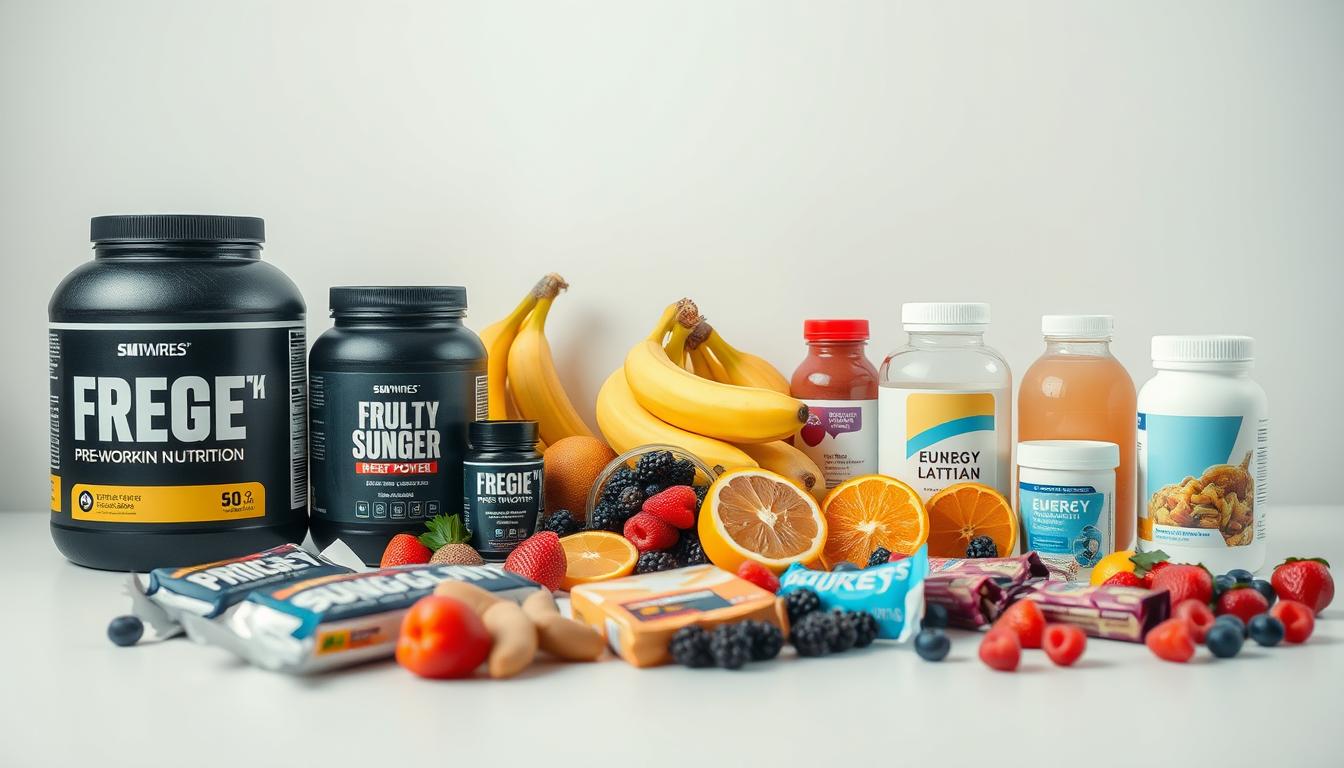Starting a weight loss journey is both thrilling and scary. There are many ways to lose weight, but finding the best ones is key. They should help you lose weight and live healthier.
Choosing the right weight loss techniques is crucial. By sticking to lasting practices, you can reach your goals and stay healthy.
Key Takeaways
- Focus on sustainable lifestyle changes rather than quick fixes.
- Incorporate a balanced diet and regular exercise into your routine.
- Stay hydrated and manage stress to support your weight loss journey.
- Get enough sleep to help regulate hunger hormones.
- Monitor your progress and adjust your strategies as needed.
Understanding Weight Loss: The Basics
Before starting any weight loss program, it’s key to understand how it works. Knowing this helps you make better choices for your health and fitness.
What Is Weight Loss?
Weight loss means losing body weight, often through diet, exercise, and lifestyle changes. It’s not just about looking good. It’s about getting healthier and lowering disease risks like diabetes and heart disease. Losing weight means losing fat, water, and sometimes muscle.
Effective weight loss techniques aim for lasting lifestyle changes, not quick fixes. This means sticking to healthy diet plans that you can keep up with long-term.

How the Body Burns Calories
Your body burns calories through metabolism. Metabolism changes based on age, gender, weight, and activity level. More muscle means a faster metabolism, since muscle needs more energy than fat.
Exercise not only burns calories but also builds muscle. This boosts your metabolic rate. So, a healthy diet and exercise are key to losing weight.
Common Misconceptions
Many myths about weight loss can slow you down. One myth is cutting calories too much to lose weight fast. But, eating too little can cause nutrient shortages and weight gain.
Another myth is that certain foods or supplements can burn fat fast. While some foods may help, there’s no quick fix. A balanced diet and regular exercise are still the best ways.
- Eating too little can slow down your metabolism.
- Skipping meals can lead to overeating later.
- Focusing on whole foods is more effective than relying on processed diet foods.
Setting Realistic Goals for Weight Loss
Starting a weight loss plan with clear goals is key. It keeps you motivated and focused. Setting specific goals helps you stay on track.
Importance of Specific Goals
Specific goals are essential. They give you a clear direction and help you focus. Instead of just saying “lose weight,” aim for “lose 10 pounds in 3 months.”
This makes your plan more effective. You can track your progress and adjust as needed. Goals should be measurable and attainable.
Achievable Milestones
Breaking your journey into achievable milestones is a proven weight loss method. It keeps you motivated by giving you a sense of accomplishment at each step.
For example, instead of just focusing on the end goal, set milestones like losing a certain amount of weight each month or doing a certain number of workouts a week.
| Milestone | Target | Benefits |
|---|---|---|
| Short-term | 5% weight loss in 6 weeks | Boosts motivation, initial health improvements |
| Mid-term | 10% weight loss in 3 months | Increased confidence, noticeable changes |
| Long-term | Sustainable weight loss over 6-12 months | Significant health improvements, sustainable lifestyle changes |
Motivational Techniques
Staying motivated is crucial for reaching your weight loss goals. Use positive self-talk, reward systems, and regular progress tracking to stay motivated.
For instance, reward yourself with non-food items like a new workout outfit or a relaxing bath when you hit milestones. This keeps you motivated and focuses on overall well-being, not just weight loss.

By using these strategies, you can make your weight loss journey more effective and sustainable.
Creating a Balanced Diet Plan
A balanced diet is key for losing weight and staying healthy. Focus on the right nutrients and control calories to support your weight loss. This way, you nourish your body while reaching your goals.
Key Nutrients for Weight Loss
Not all nutrients are the same when it comes to losing weight. Protein is important for building muscle, which boosts your metabolism. Healthy fats in foods like avocados and nuts keep you full. Also, fiber-rich foods like fruits and whole grains are good for your digestion and can curb hunger.
- Eat more lean proteins like chicken and fish.
- Add healthy fats to your meals.
- Make sure to eat a variety of fiber-rich foods every day.
Portion Control Strategies
It’s important to control how much you eat. Using smaller plates can help you eat less. Being aware of serving sizes and not eating from packages can stop overeating. Also, eating slowly lets your body tell you when you’re full.
- Use a food scale or measuring cups to measure your food.
- Check serving sizes on food labels.
- Eat slowly to know when you’re satisfied.
Meal Planning Tips
Good meal planning makes sticking to a healthy diet easier. Start by planning meals around your schedule. This way, you always have healthy options. Batch cooking saves time by preparing meals ahead. Try theme nights or meal prepping to keep things interesting.
- Make a weekly meal plan with breakfast, lunch, dinner, and snacks.
- Buy ingredients based on your meal plan to avoid impulse buys.
- Prepare meals in advance to save time during the week.
By using these tips, you can make a balanced diet plan that helps with weight loss and health. Remember, a healthy diet is just one part. Adding regular exercise routines for weight loss will improve your results and well-being.
The Role of Physical Activity
Physical activity is key to a healthier life. It boosts both physical and mental health. Adding it to your daily routine can help with weight loss and overall health.
Benefits of Regular Exercise
Regular exercise does more than help with weight loss. It improves cardiovascular health, strengthens muscles, and boosts metabolism. It also helps with mental health by lowering stress and anxiety.
Regular physical activity can also improve sleep, increase energy, and enhance physical function. With so many benefits, exercise is essential for a healthy lifestyle.
Types of Effective Workouts
There are many workouts that help with weight loss and health. Aerobic exercises, like walking, running, and cycling, are good for the heart and burn calories. Strength training, such as weightlifting, builds muscle and boosts metabolism.
High-intensity interval training (HIIT) is also effective. It involves short, intense workouts followed by rest. This method is great for weight loss and heart health.
Incorporating Activity into Daily Life
Adding physical activity to your daily routine is easy. Small changes, like taking the stairs or going for a walk during lunch, can help a lot.
Choose activities you enjoy, like dancing, swimming, or hiking. This makes exercise more enjoyable and helps you stick with it.
- Schedule exercise into your daily planner
- Find a workout buddy for motivation
- Try new activities to avoid boredom
Tracking Your Progress
You can’t manage what you don’t measure, which is why tracking your progress is vital for successful weight management strategies. By regularly monitoring your progress, you can identify areas that need improvement. Then, you can make necessary adjustments to your weight loss plan.
Tools and Apps for Tracking
In today’s digital age, there are many tools and apps to help you track your weight loss journey. Apps like MyFitnessPal and Lose It! let you log your daily food intake and exercise. They provide valuable insights into your calorie balance. Wearable devices such as Fitbits and Apple Watches track your physical activity, heart rate, and even sleep patterns. These tools offer a comprehensive view of your progress, helping you stay on track with your effective weight loss strategies.
Importance of Keeping a Journal
Keeping a journal is a simple yet powerful way to track your progress. By recording your daily food intake, exercise, and emotions, you can identify patterns and triggers that affect your weight loss. This practice not only helps you stay accountable but also provides a sense of accomplishment as you see your progress over time. It’s a personal and reflective tool that complements the data from your tracking apps and devices.
Regular Check-Ins
Regular check-ins with yourself or a weight loss support group can significantly enhance your motivation. Scheduling regular weigh-ins or progress reviews helps you stay focused on your goals. It’s also an opportunity to celebrate your successes and address any challenges you’re facing. By incorporating regular check-ins into your routine, you’re more likely to stick to your effective weight loss strategies and achieve long-term success.
Mindful Eating Practices
Mindful eating is a key to lasting weight loss. It focuses on enjoying the act of eating. This way, you build a better connection with food.
What Is Mindful Eating?
Mindful eating means paying full attention to your food. It’s about savoring each bite and eating slowly. You notice the taste, texture, and smell of your food.
This method helps you enjoy your meals more. It also stops you from eating too much. Being aware of your eating habits leads to better choices.
Techniques for Practicing Mindfulness
Here are ways to make mindful eating a part of your day:
- Eat slowly and savor your food.
- Notice the colors, smells, and textures of your food.
- Use all your senses while eating.
- Avoid distractions like TV or smartphones during meals.
- Listen to your body’s hunger and fullness signals.
These practices help you eat more mindfully. This leads to a more balanced and enjoyable eating experience.
Benefits of Listening to Your Body
Listening to your body’s hunger and fullness cues is key in mindful eating. This practice helps you:
- Know when you’re truly hungry or full.
- Avoid overeating and reduce the risk of weight gain.
- Develop a healthier relationship with food.
- Enjoy your food more and feel more satisfied.
By tuning into your body’s signals, you can achieve lasting weight loss. This improves your overall well-being.
Adding mindful eating to your life is a big step towards your weight loss goals. It helps you enjoy a more balanced and fulfilling eating experience.
Overcoming Weight Loss Plateaus
If you’re feeling stuck because you’re not losing weight, you’re not alone. Many people hit a plateau on their weight loss journey. It’s when you keep trying but the scale doesn’t change.
Understanding Why Plateaus Happen
A weight loss plateau happens when your body gets used to your new habits. At first, your body changes quickly. But as time goes on, your metabolism slows down, and you stop losing weight.
Several things can cause a weight loss plateau, including:
- Reduced muscle mass, which can slow down your metabolism
- Increased efficiency in your body’s energy use, making it more effective at conserving energy
- Hormonal changes that affect hunger and satiety signals
- Lack of variation in your diet and exercise routine, leading to stagnation
Strategies to Break Through
To get past a weight loss plateau, try proven weight loss methods like changing your workout. You could do more intense, longer, or more frequent workouts. Adding natural weight loss remedies like herbs or supplements can also help. But always talk to a doctor before trying new supplements.
Another good idea is to look at your diet again. You might:
- Keep a food diary to see what you eat and when
- Change how many calories you eat, since your needs might have changed
- Eat more foods that are full of nutrients, like fiber, protein, and healthy fats
Adjusting Your Routine
Changing your routine is key to breaking through a plateau. Try new exercises to challenge your body. For example, if you’ve been doing the same workout for months, it’s time to try something new, like switching from cardio to strength training or incorporating high-intensity interval training (HIIT).
Also, getting help from a healthcare professional or a registered dietitian can be very helpful. They can give you advice that fits your needs. They can help you figure out why you’re stuck and suggest effective adjustments to your diet and exercise plan.
The Importance of Hydration
Drinking enough water is key for your health and weight. It helps your body work well, speeds up your metabolism, and aids in losing weight.
How Water Affects Weight Loss
Water plays a big role in losing weight. It does several things:
- Increased Satiety: Water makes you feel full, so you eat less.
- Improved Metabolism: Not drinking enough can slow down your metabolism, making it harder to lose weight.
- Enhanced Exercise Performance: Drinking water is important for working out well, helping you get the most from your exercise.
Recommended Daily Intake
How much water you should drink varies. It depends on your age, sex, weight, and how active you are. A common rule is to drink eight 8-ounce glasses a day, known as the “8×8 rule.”
But, your needs might be different. For example, if you’re very active or live in a hot place, you might need more water to stay hydrated.
Tips for Staying Hydrated
Here are some easy ways to stay hydrated:
- Drink a Glass of Water Upon Waking: Drinking water first thing in the morning helps start your hydration.
- Infuse Your Water: Adding lemon, lime, or cucumber slices makes water taste better.
- Monitor Your Intake: Use a water bottle or app to keep track of how much you drink.
By following these tips, you can stay hydrated and help your health and weight loss goals.
Building a Support System
Building a strong support network can greatly improve your weight loss journey. Having people who understand and support your goals can make a big difference. It boosts your progress and keeps you motivated.
Finding Accountability Partners
Finding someone who is also trying to lose weight can be very helpful. Accountability partners offer encouragement, share tips, and help you stay focused. You can find them in local weight loss groups or online forums.
Having someone to report to and be accountable with can really boost your motivation. Regular check-ins with your partner help you overcome challenges and celebrate your successes.
The Role of Family and Friends
The support of family and friends is key in your weight loss journey. They can offer emotional support, help with meal planning, and join you in activities. It’s important to share your goals and needs with them so they can support you the right way.
By involving your loved ones in your journey, you create a more supportive home environment. This can lead to healthier habits for everyone, making your weight loss journey positive for all.
Online Communities for Support
Online communities dedicated to weight loss are very valuable. These platforms let you connect with others who face similar challenges. You can share your experiences, ask for advice, and find motivation in others’ stories.
Joining online forums or social media groups focused on weight loss can give you a sense of belonging. You can find a lot of helpful information, from diet tips to workout routines. Plus, you get support whenever you need it.
Long-Term Weight Maintenance Strategies
Keeping weight off for good means making lasting lifestyle changes. By adding effective weight loss strategies to your daily life, you can make sure your weight loss sticks.
Sustainable Habits for Lasting Results
Building sustainable habits is key for keeping weight off. This means eating well and exercising regularly, things you can keep up with for years. Try meal planning, controlling portions, and finding fun exercises to keep you going.
Adapting to Change
As you move forward, it’s important to change your goals and plans as needed. Regular self-check-ins help you stay on track and make any needed changes. Being open to your body’s needs helps you keep enjoying a healthier life.


